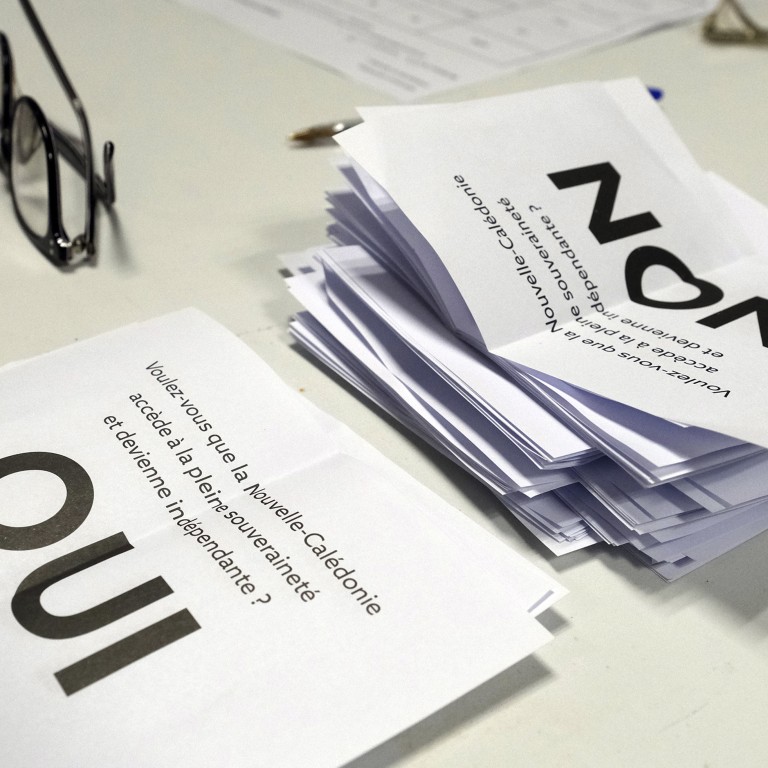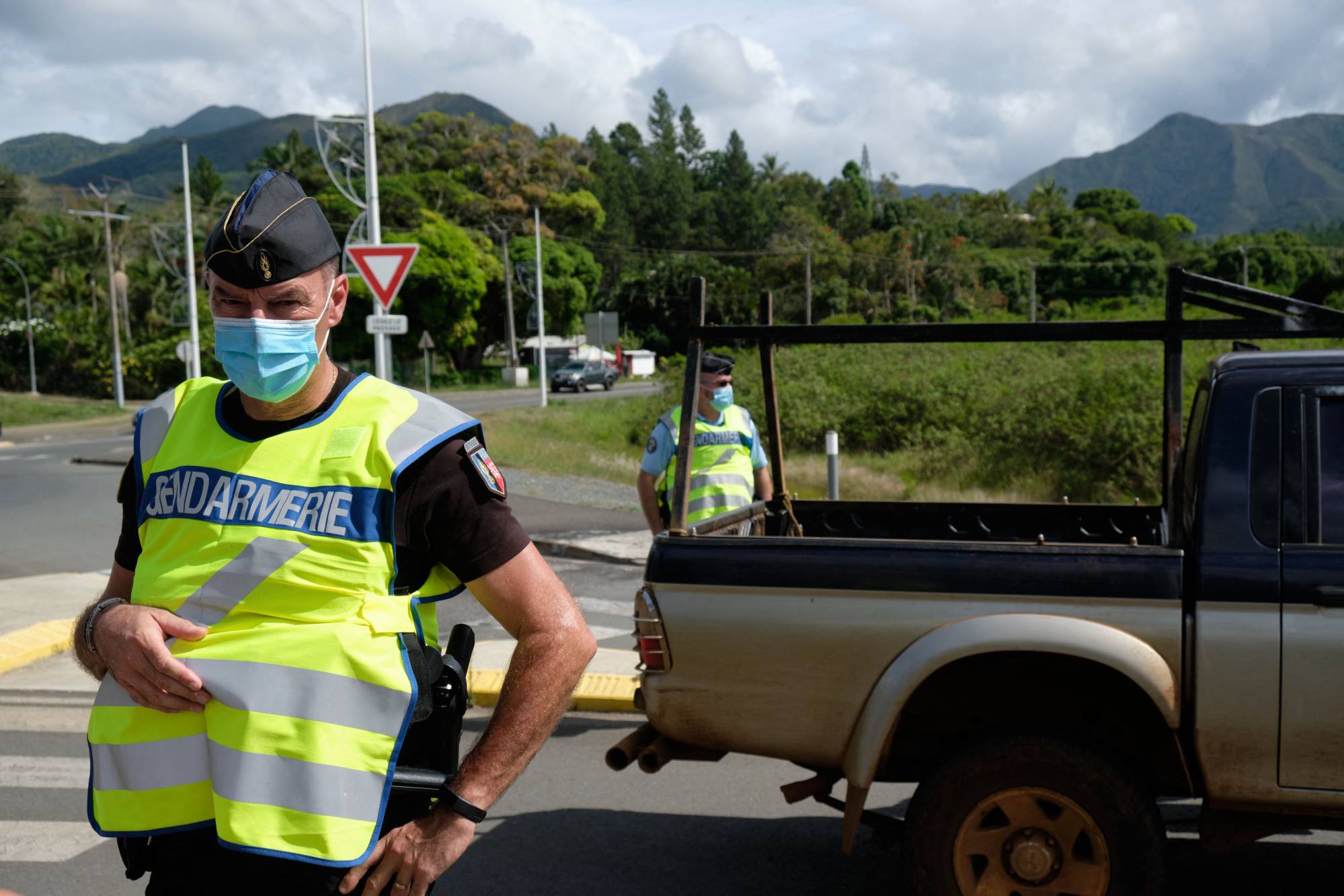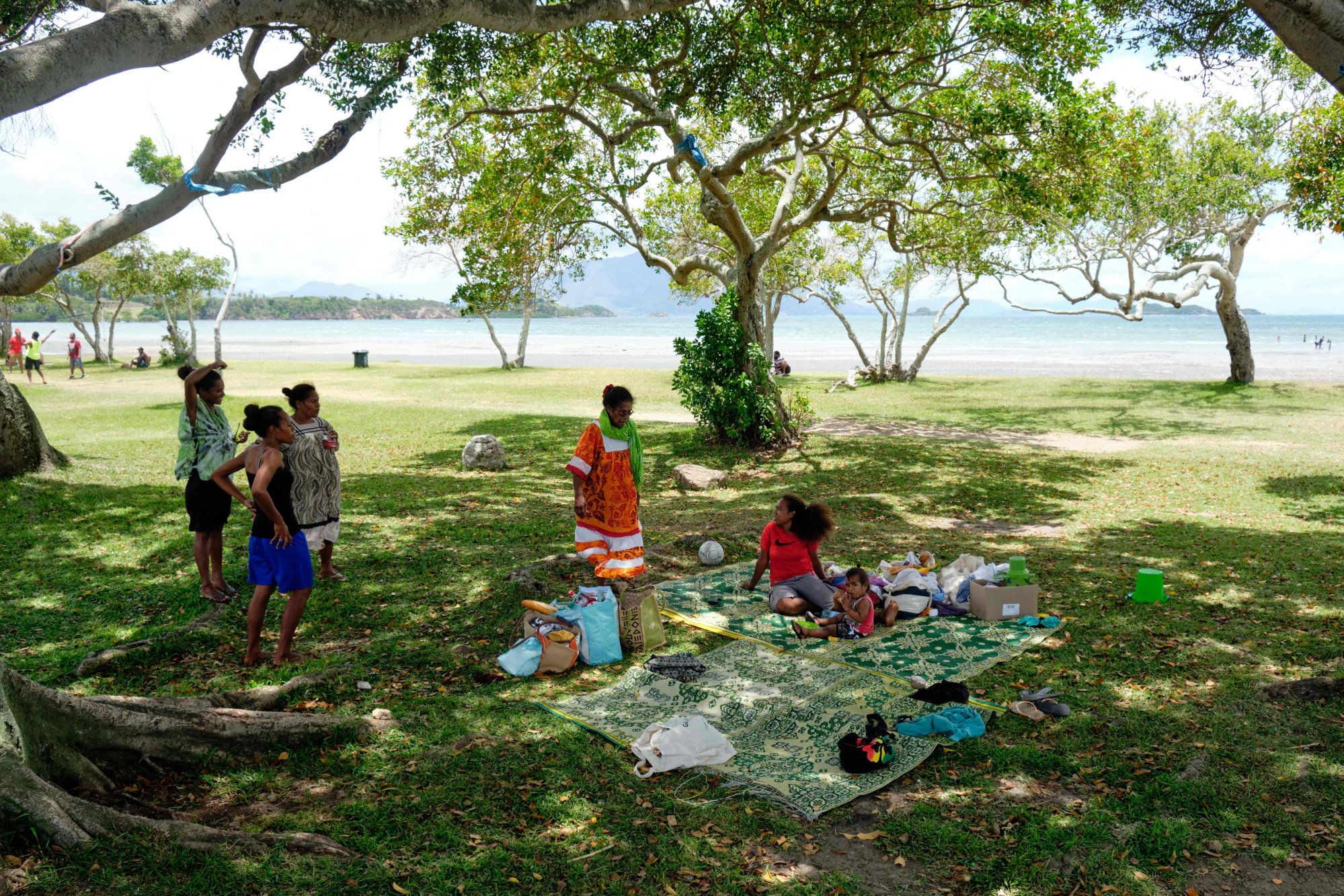
New Caledonia voters reject independence from France; president Macron says France “more beautiful” when Pacific islands included
- Referendum boycotted by pro-independence forces, who wanted delay in vote because of pandemic; overall turnout just 41 per cent
- Important as France aims to cement presence in Indo-Pacific region after losing major submarine contract to a partnership between Australia, US, UK, and China’s influence grows
Separatist activists had urged a delay in the vote because of the pandemic, and were angry over what they said were French government efforts to sway the campaign. So they called on their supporters to stay away from voting stations.
And they did. With three-quarters of the vote counted, 91 per cent of those who took part chose to stay in France, according to regional officials. Overall turnout was just 41 per cent, less than half the numbers who showed up in a previous independence referendum last year, where support for breaking away was 46.7 per cent.

Keeping New Caledonia is important for French geopolitical ambitions in Indo-Pacific. French President Emmanuel Macron said “a period of transition” would begin for New Caledonia after voters overwhelmingly rejected independence, adding that “France was more beautiful” with the Pacific islands included.
“A period of transition is beginning. Free from the binary choice of ‘Yes’ or ‘No’, we must now build a common project, while recognising and respecting the dignity of everyone,” he said, adding: “Tonight France is more beautiful because New Caledonia has decided to stay part of it.”
France recalls ambassadors from US and Australia over submarine deal
The vote was monitored by the UN and regional powers, amid global efforts toward decolonisation and amid growing Chinese influence in the region. New Caledonia, colonised by Napoleon’s nephew in the 19th century, is a vast archipelago of about 270,000 people east of Australia that is 10 time zones ahead of Paris, and hosts a French military base.
Sunday’s vote was the third and last in a decades-long decolonisation process that stemmed from violence in 1988, which led to the French government handing New Caledonia broad autonomy under the Noumea Agreement.

The process was aimed at settling tensions between native Kanaks seeking independence and those who want the territory to remain part of France.
The process does not end with the referendum. The state, separatists and non-separatists now have 18 months to negotiate a new status for the territory and its institutions within France.
China urges France to boost cooperation in wakes of Aukus pact
A tropical storm warning also dampened enthusiasm for the vote. Queues snaked out of some polling stations, as winds whipped palm trees lining the streets of the regional capital Noumea. But turnout at others was barely a trickle.
The question put to people in the archipelago’s 307 voting stations was: “Do you want New Caledonia to gain full sovereignty and become independent?” Masks and social distancing measures were required.
The campaign and voting day were unusually calm because of the boycott call.
“There are a lot less people” than during previous referendums, said Laura Vendegou, assessor at a polling station welcoming New Caledonians from the Loyalty Islands. “The opening was very calm.”

But at the Noumea city hall, voters showed up at 6.30am to line up to vote.
In the first such referendum in 2018, 43.6 per cent of voters supported independence, and 46.7% favoured it in a second vote held in 2020. While support for a “yes” vote seemed to be growing, the region’s first coronavirus outbreak in September threw the political debate into disarray. Until then, New Caledonia had been one of the few virus-free places left on the planet.
By November, the archipelago had reported 271 Covid-19 deaths, and the regional Senate decreed a year of traditional Kanak mourning. Independence activists felt they could not campaign out of respect for their dead, and demanded that the referendum be postponed.

But pro-France groups insisted the vote should take place as expected to end uncertainty over New Caledonia’s future and to boost its economic prospects. Pro-independence activists announced they would refuse to take part, accusing the government in Paris of imposing the referendum date and violating neutrality by publishing a document seen as casting the consequences of independence in a negative light.
France is trying to cement its presence in the Indo-Pacific region after it lost a multibillion-dollar submarine contract because of a partnership Australia formed with the United States and the UK.
The secretly negotiated submarine project, announced in September and aimed at countering Chinese ambitions in the region, was a huge blow to France. New Caledonia hosts one of two French military bases in the Pacific.
The UN has supported New Caledonia’s decolonisation process and sent electoral observers to monitor Sunday’s vote. The Pacific Islands Forum also sent a delegation to observe the vote.


